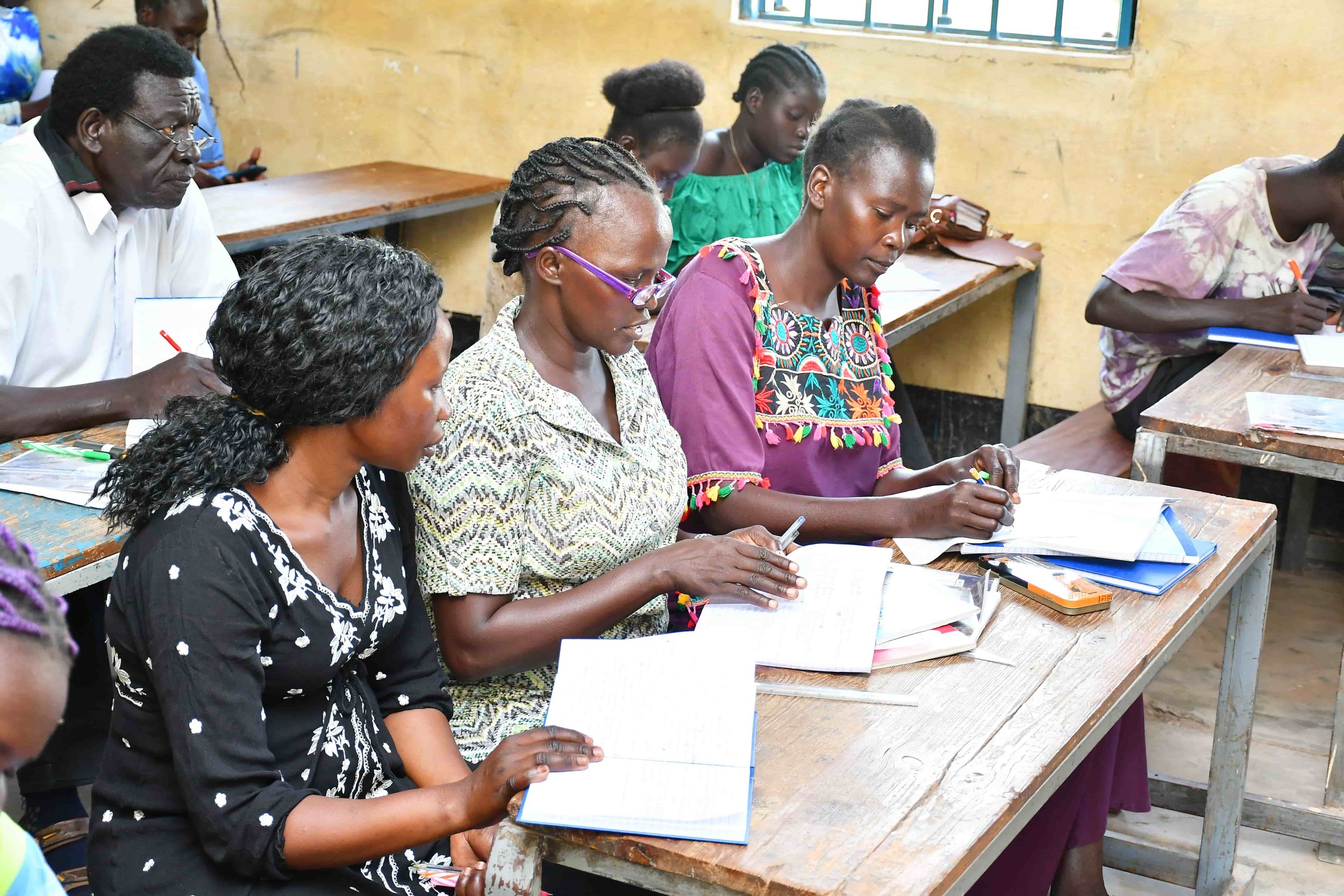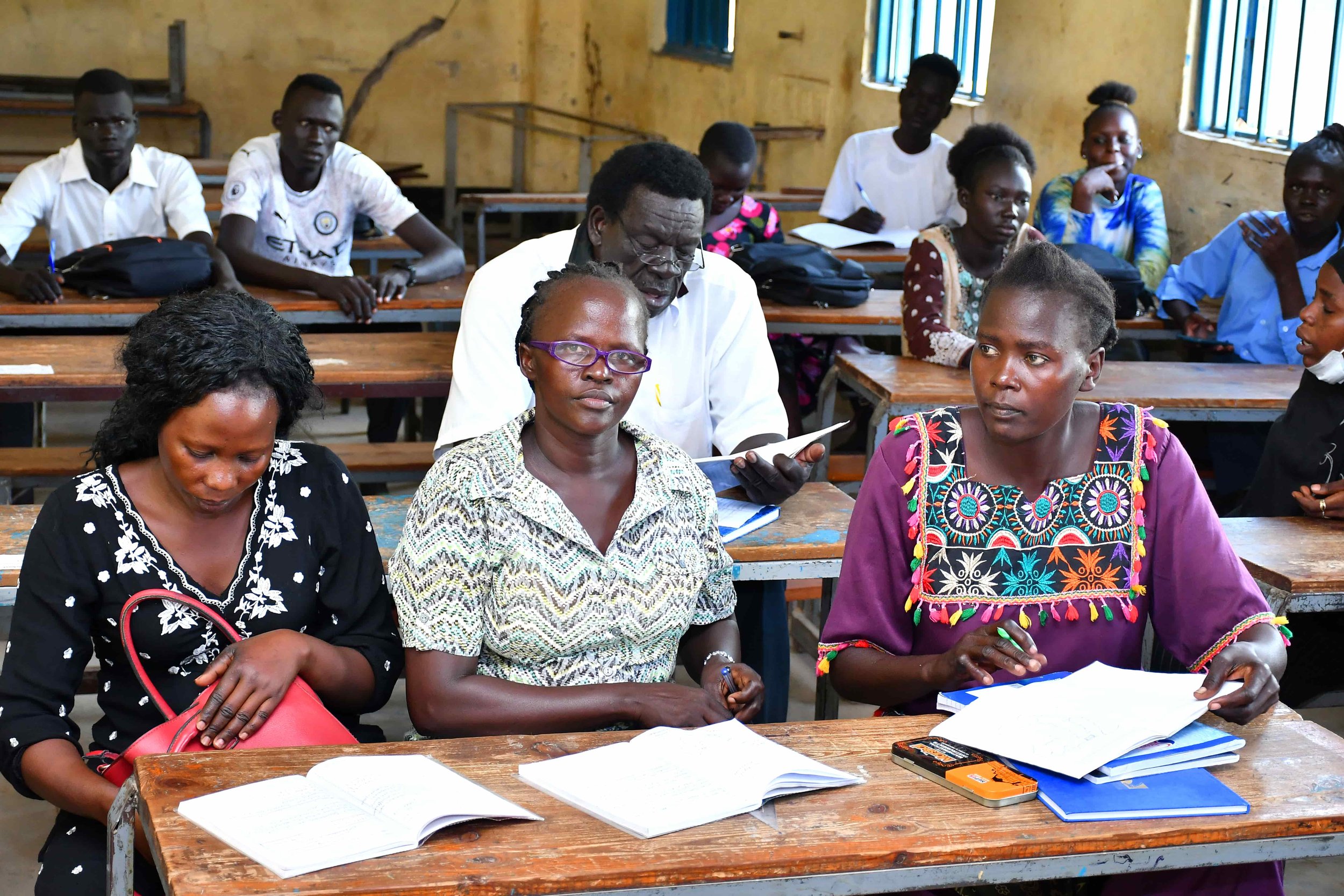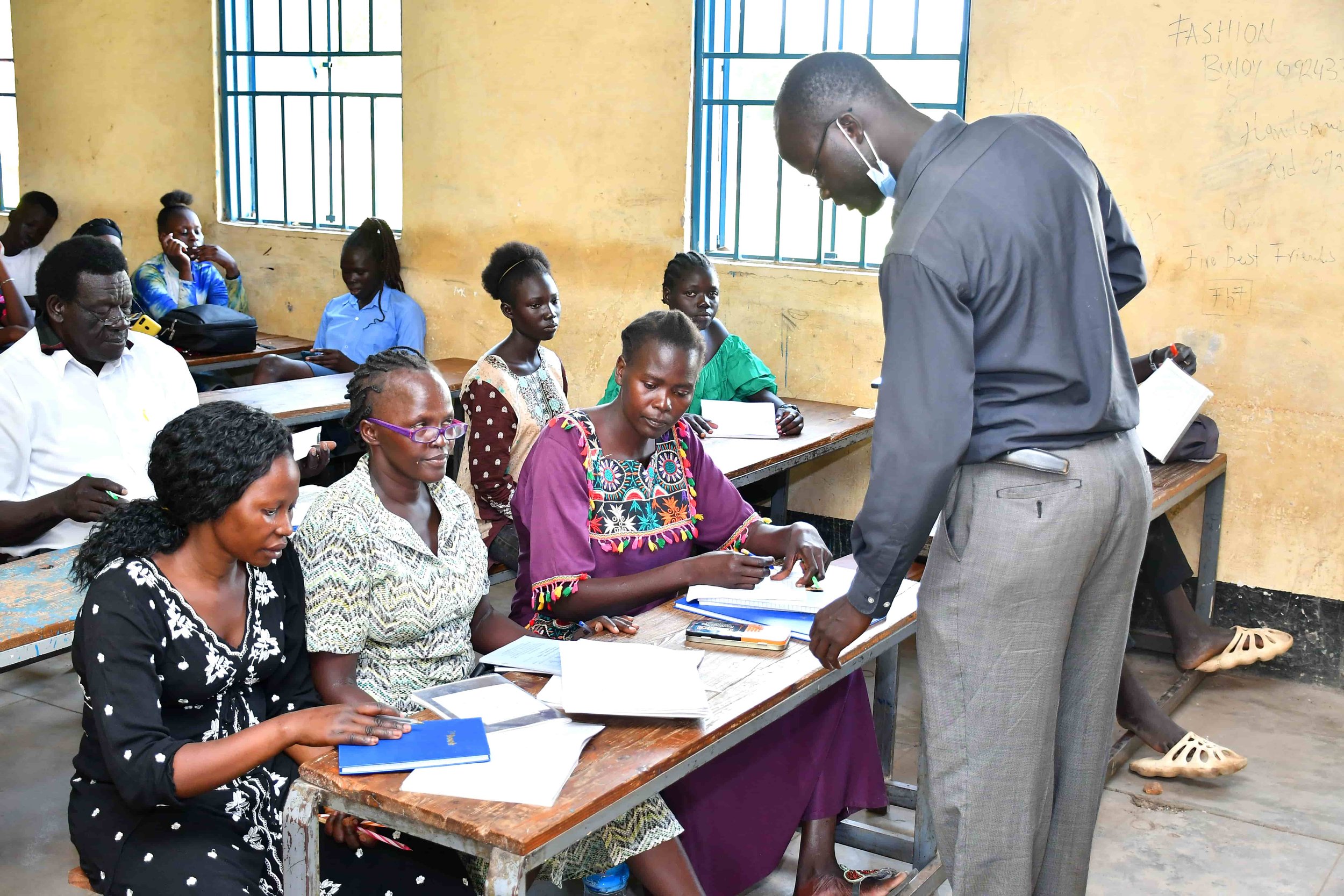Ensuring quality education for South Sudan: challenges and responses
Windle Trust International believes that education is a fundamental human right and is essential for the development of individuals and societies.
Access to quality education enables individuals to reach their full potential and helps to break the cycle of poverty. It empowers individuals to participate fully in their communities and contributes to the overall development of a nation. In South Sudan however, the quality of education is generally low, with a high percentage of students failing to meet basic learning standards.
Windle Trust International is working to change that.
One of the major challenges to education in South Sudan is the lack of teachers: South Sudan has just 1 teacher employed for every 77 students. Making matters worse, many of those who do work as teachers are untrained volunteers. According to UNESCO, only about 35% of primary school teachers in South Sudan have received any form of teacher training, and only 40% of primary schools have any trained teachers at all. A lack of teacher training programmes and opportunities in the country has contributed to this, with many aspiring teachers restricted in access due to financial, educational, or geographic barriers.
What are we doing about this?
Windle Trust International supports multiple programmes to tackle this shortage, including establishing an Accelerated Secondary Education Programme (ASEP). ASEP was set up for those who were teaching in primary school but had been forced to drop out of their own secondary education, giving them a chance to complete it. Following a compressed curriculum allows overage learners to complete their secondary studies, essential for their own development, but also opening up access to higher level training opportunities such as teacher training. Our research report on the impact of Accelerated Secondary Education is available to read here. In 2020, despite COVID-19, we were able to set up 20 ASEP centres for learners in South Sudan and enrolled 655 participants.
Tabitha, pictured above, is one of our ASEP learners. She dropped out of education due to fleeing as a refugee to Northern Uganda in 2007 and falling pregnant in the same year. Now she has an opportunity to finish her education and enrolled with ASEP in June 2022. Read more about her story at education.org
In collaboration with the Ministry of General Education and Instruction in South Sudan, Windle Trust International also provides Continuous Professional Development (CPD) for in-service teachers to enhance teaching capacity. This programme supports untrained volunteer teachers to gain qualifications and improve their ability to deliver South Sudan's new competency based curriculum and utilise a student centred approach in the classroom.
What's next?
Windle Trust International will continue to invest in improving the quality of education in South Sudan. Supported by All Saints Educational Trust we currently offer a scholarship to train female teachers in Juba and Yambio through some of the country's strongest teacher training institutions. We look forward to this programme and partnership growing throughout 2023.
We also maintain a longstanding partnership with UCL's Institute of Education in London and provide both campus based and distance learning postgraduate scholarships. This allows us to build educational capacity in South Sudan at the highest level.
We are always keen to hear from new partners and new ideas to improve education quality and believe in creating both short and long term collaborations to enhance capacity, increase access and improve quality for education in both South Sudan and Sudan.
Interested in receiving Windle Trust International news and Expert Views straight to your inbox? Sign up to receive a quarterly newsletter and learn more about our programmes, work and impact.
South Sudan education data:
The teacher-student ratio in South Sudan is 1:77 (World Bank, 2021)
On average, a teacher in South Sudan is paid just $50 per month (UNICEF, 2020)
Only 20% of secondary schools in South Sudan have a single female teacher (UNESCO, 2019)
A single trained teacher is present in just 40% of South Sudanese schools (UNICEF 2018)
24% of South Sudanese schools have electricity (UNICEF, 2020)




